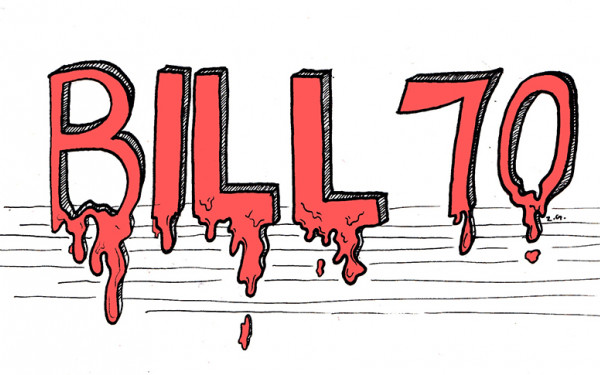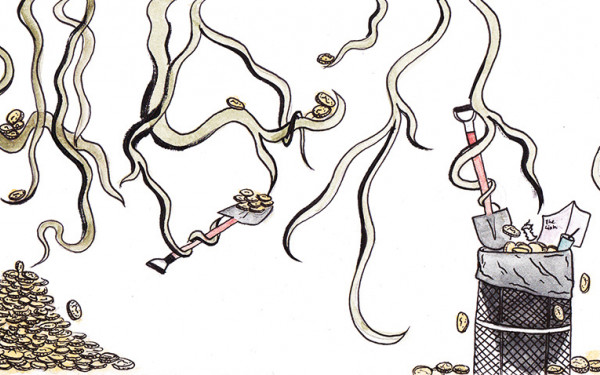Editorial: Austerity’s Not for the Admin
Concordia has a bit of a history when it comes to throwing money at outgoing administrators.
Back in 2012, the Quebec Ministry of Education actually fined the university $2 million for giving excessive settlement packages to senior administrators—including former president of the Board of Governors Judith Woodsworth, who was given a $700,000 package after leaving mid-way through her term.
In February 2016, then-Chief Financial Officer Sonia Trudel was given a $235,000 severance package after serving only three months of her mandate.
According to recently released audits from the previous year, Concordia has paid an additional $1.1 million to outgoing administrators—classified under payments of “administrative leave.” This program specifies that when an administrator leaves their position—either having finished their final mandate or not being renewed for a new mandate—the administrator will automatically be given the equivalent of an average year’s salary.
While this may appear somewhat less scandalous than the university giving generous packages to administrators who have not even completed their mandates, it still raises significant questions. And like any serious issue, context is key.
Since the 2012-2013 school year, Concordia has suffered a series of major budget cuts under various governments’ austerity regimes. Between then and the beginning of the 2015-2016 year, the university has had a total of $36.6 million cut from its budget.
This has, obviously, had a negative effect on students at the university. The cuts have forced the university to cut seven per cent of the university’s courses. Class sizes have increased, and teaching assistants have taken a more prominent role in the classroom.
In response to budget cuts, the university also instituted a “voluntary departure program,” where they paid staff members to leave their jobs and then abolished the positions. A total of 65 positions were abolished as part of this program. At least 40 teaching positions have been intentionally left vacant in order to cut down on costs.
As another way of making up for this budget shortfall, the university attempted to increase the tuition for international undergraduate students in the deregulated programs of engineering, computer science, mathematics and pure sciences. The plan ultimately failed late last semester, when students mobilized against the Board of Governors.
Noticeably absent from this list of actions that Concordia has taken in response to budget cuts is any measure that affects the payroll of the senior administration. As the ones who determine implementation of budgets—and budget cuts—Concordia’s administrators have shown themselves willing to push costs onto students and faculty instead of dipping into their own members’ salaries.
It’s no small wonder, then, that the administration has been hesitant to seriously denounce budget cuts in higher education. As long as the cost of budget cuts can be pushed off onto students, rather than within the already inflated admin pay, we can’t expect Concordia’s administrators to effectively challenge provincial austerity. If admins had to shoulder some of the burden of austerity themselves, maybe they would be more likely to denounce it.
The administration uses policy to justify the packages. They say that they’re granted automatically, and not as a conscious choice by the administration. However, this same administration has shown itself willing to change its policies to adapt to austerity in other circumstances—specifically when those changes affect students. Why should admin pay be treated as something sacred?
We at The Link believe that, at the very least, the administration should be re-thinking their pay structure and considering a significant drop in admin salary. Budget cuts from the provincial government should be implemented equitably, rather than being shouldered by the least powerful blocs at the university.
Beyond that, we also believe that the administration should be mounting a public and visible campaign in favor of large-scale public reinvestment in higher education—a reversal of the past years’ austerity. If that were to be successful, then maybe they would have earned those administrative leave packages.


_600_832_s.png)



_600_375_s_c1.png)
